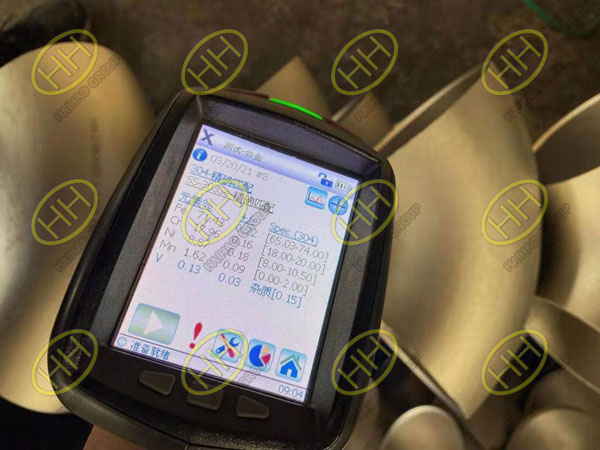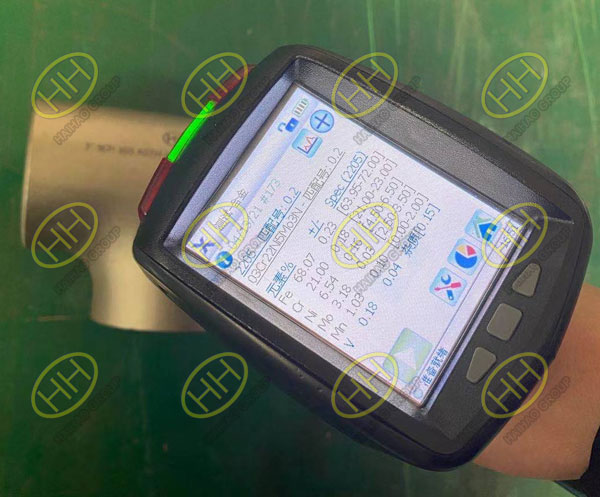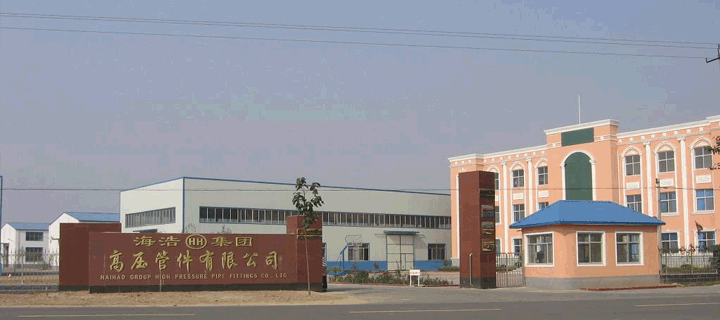PMI, or Positive Material Identification, is a non-destructive testing technique used to identify the composition of metallic materials. PMI inspection is a critical process in industries where the use of the wrong material can have serious consequences, such as in oil and gas, aerospace, and power generation.
During PMI inspection, a handheld device is used to measure the elemental composition of the material. The device uses either X-ray fluorescence (XRF) or optical emission spectroscopy (OES) to identify the elements present in the material. The results are compared to the expected composition, and any discrepancies can be addressed before the material is used in production.

XRF PMI testing method of ASTM A403 WP304 material pipe fittings
PMI inspection offers several benefits, including:
Ensuring Material Quality: PMI inspection ensures that the material used in production meets the expected quality standards. It helps identify any variations in material composition, which could affect the performance or durability of the final product.
Preventing Material Mix-ups: In industries where multiple materials are used, PMI inspection can help prevent mix-ups. This is especially critical in situations where the use of the wrong material could pose safety risks or cause equipment failures.

Direct Reading Spectrometer for PMI
Saving Time and Money: PMI inspection can help prevent costly rework or equipment failures that could result from using the wrong material. By identifying any issues early on, PMI inspection can save time and money in the long run.
At Haihao Group, we understand the importance of PMI inspection and the critical role it plays in ensuring the quality and safety of our products. That’s why we use advanced PMI inspection techniques to verify the composition of all materials used in our products. We’re committed to providing high-quality products that meet or exceed industry standards, and PMI inspection is just one of the ways we ensure that we deliver on that promise.







